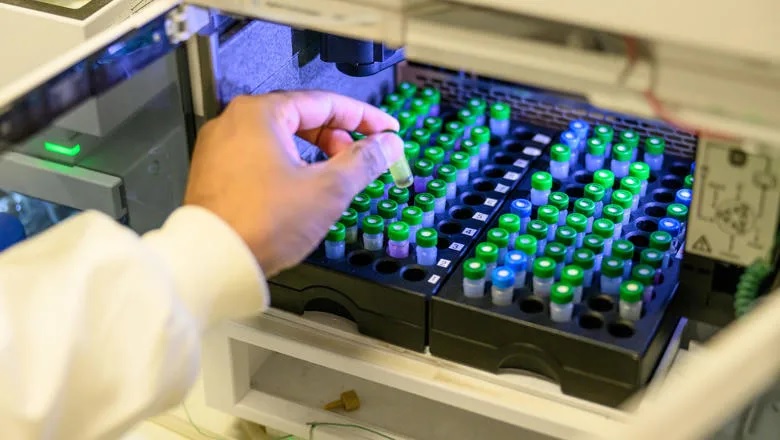
A groundbreaking cancer drug could enhance how patients respond to chemotherapy even in treatment-resistant tumours.
The drug works by disarming a key defence mechanism that tumours use to protect themselves from treatment. In preclinical models, it has already shown promise in making chemotherapy-resistant cancers more responsive to therapy.
Chemotherapy is one of the most widely used cancer treatments, but it doesn’t always work as effectively as hoped. One major reason is that macrophages act as a barrier around tumours. These immune cells surround the blood vessels inside tumours and act like gatekeepers, blocking helpful immune cells from entering and doing their job in supporting the responses to chemotherapy.
The King’s College London scientists, who have launched a spinout company Aethox Therapeutics, found that these macrophages make a protein called heme oxygenase-1 (HO-1), which helps shield the tumour from the immune system and block the effects of chemotherapy. The new drug, KCL-HO-1i, targets this protein.
Professor James Arnold, Head of Tumour Immunology Group, King’s College London, said: “We discovered that these macrophages in cancer play a key role in blocking chemotherapy. By targeting the enzyme they produce using KCL-HO-1i, we were able to help beneficial immune cells and chemotherapy drugs become significantly more effective. In laboratory models, even chemotherapy-resistant tumours became responsive to treatment, which is a really exciting step forward.”
Unlike many cancer treatments that require hospital visits, KCL-HO1i is designed to be taken at home as a tablet between chemotherapy sessions. This makes it easier for patients to incorporate into their treatment plans without adding extra hospital burdens.
In early tests using mouse models of breast cancer, supported by funding by Cancer Research UK and Medical Research Council (MRC), the drug made tumours more responsive to a range of commonly used chemotherapies. These promising results suggest it could be used across a wide variety of cancer types and chemotherapy treatments.
The researchers hope that with funding, clinical trials on breast and other cancers could begin within two years.
Professor James Spicer, Professor of Experimental Cancer Medicine, King’s College London, said: “Chemotherapy remains a key part of treatment for many patients with cancer, but too often it is not as effective or long-lasting as we might like. This research has identified a key reason for these limitations, and discovered a drug that we are keen to test in the clinic alongside established chemotherapy drugs”.
This breakthrough is the result of a multidisciplinary collaboration between researchers including Professors James Arnold, James Spicer, and Miraz Rahman and their research teams at King’s College London.
If human trials are successful, KCL-HO-1i could become a valuable companion drug to existing cancer therapies – helping more patients to benefit from the treatments that are already available and reduce the need for more aggressive cancer therapies in the future.
Professor Miraz Rahman, Professor of Medicinal Chemistry, King’s College London

